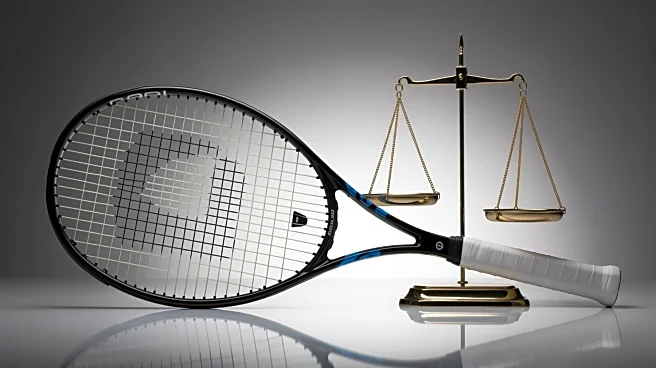What's Happening?
Ukrainian tennis player Marta Kostyuk has sparked controversy with her comments regarding the biological advantages of top-ranked female tennis players, Aryna Sabalenka and Iga Swiatek. In an interview
at the Wuhan Open, Kostyuk suggested that some players have higher levels of testosterone, which she believes gives them a competitive edge. Kostyuk, ranked No. 27, expressed feeling smaller and less powerful compared to her competitors, citing their physical size and strength as significant factors in their success. She also highlighted the emotional confidence displayed by players like Sabalenka during critical match points, which she finds challenging to emulate.
Why It's Important?
Kostyuk's remarks have ignited discussions about the role of biological differences in sports, particularly in tennis, where physical and mental attributes are crucial for success. The comments may lead to broader debates on fairness and equality in women's sports, potentially influencing public policy or sports regulations. The issue touches on sensitive topics such as gender and biological advantages, which could impact how athletes are trained and evaluated. Stakeholders in the sports industry, including athletes, coaches, and governing bodies, may need to address these concerns to ensure fair competition.
What's Next?
The controversy may prompt responses from the tennis community, including statements from Sabalenka and Swiatek, as well as potential discussions within sports organizations about the implications of Kostyuk's comments. There could be calls for scientific studies or policy reviews to better understand the impact of testosterone levels on athletic performance. Additionally, the debate might influence future conversations about inclusivity and fairness in sports, possibly leading to changes in how athletes are categorized or compete.
Beyond the Headlines
Kostyuk's comments highlight the ongoing conversation about gender and biological differences in sports, which could have long-term implications for how female athletes are perceived and supported. The issue may also intersect with broader societal discussions about gender identity and equality, influencing cultural attitudes towards female athletes and their achievements.










